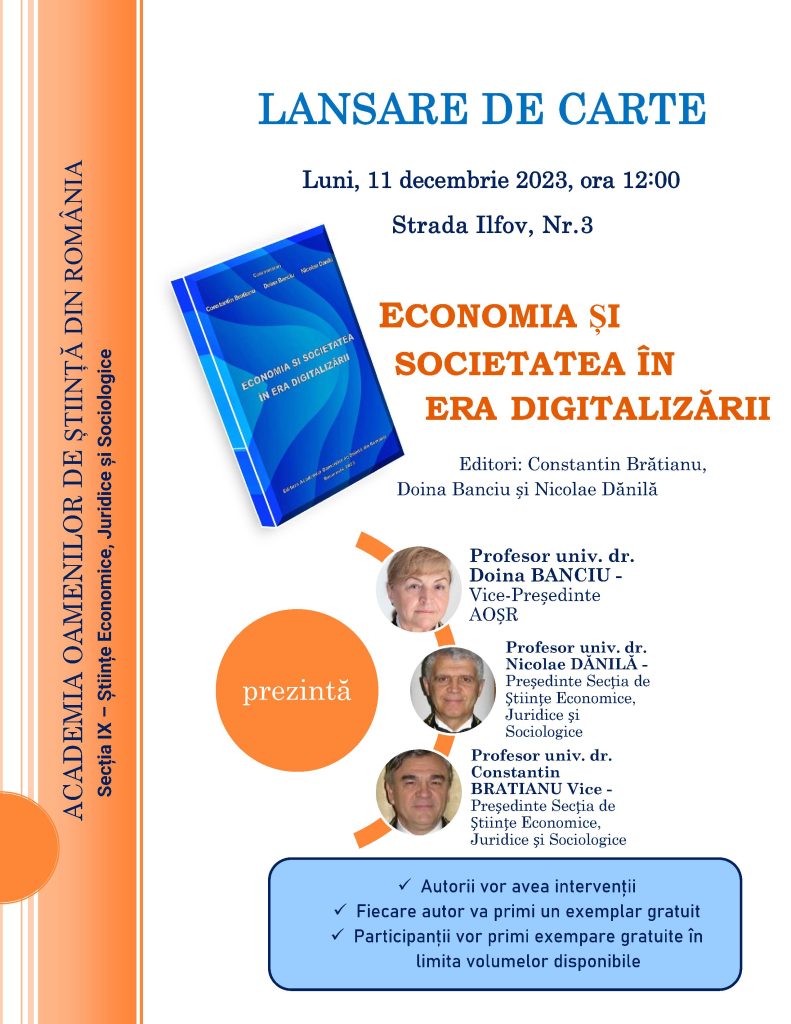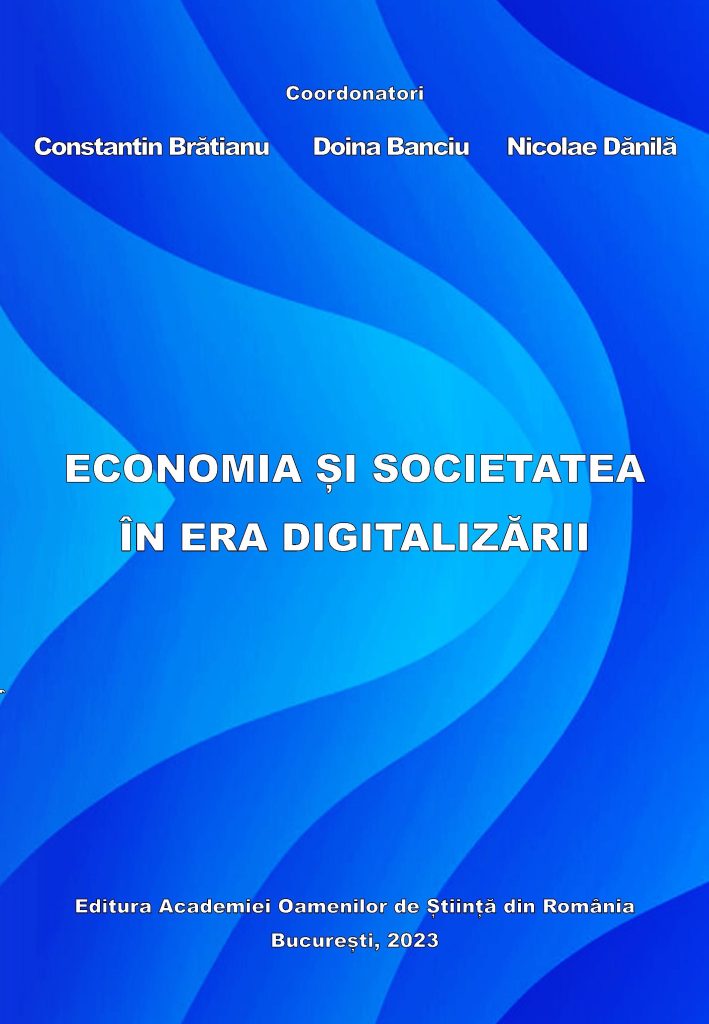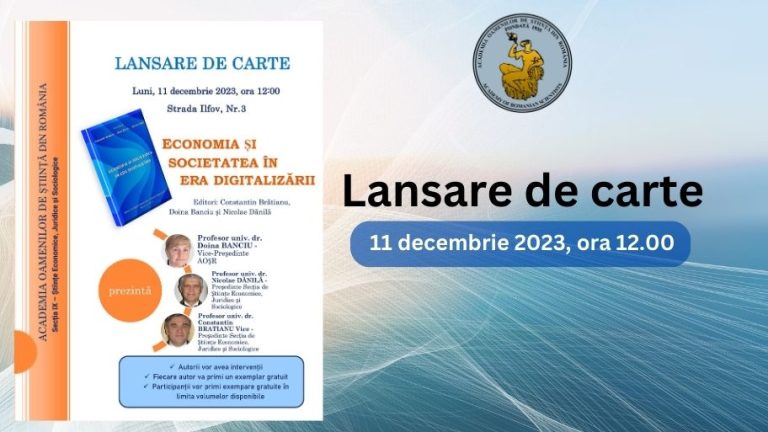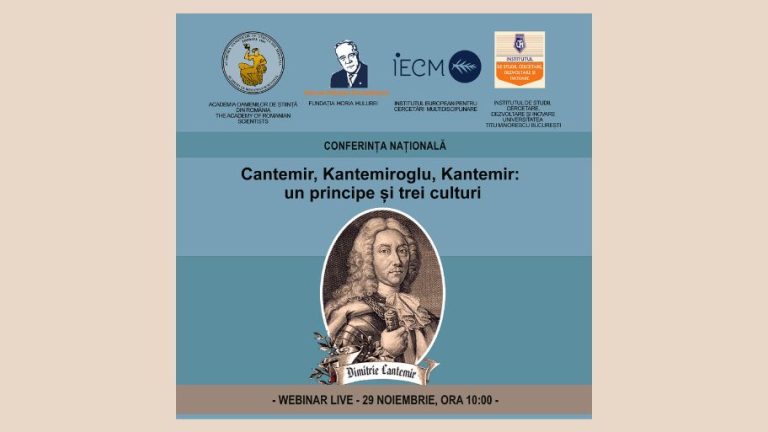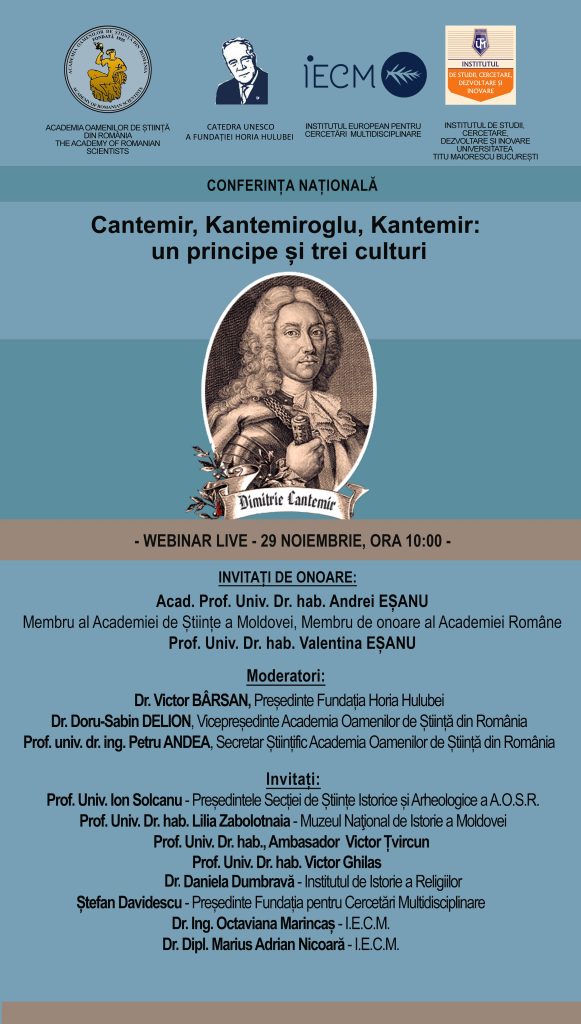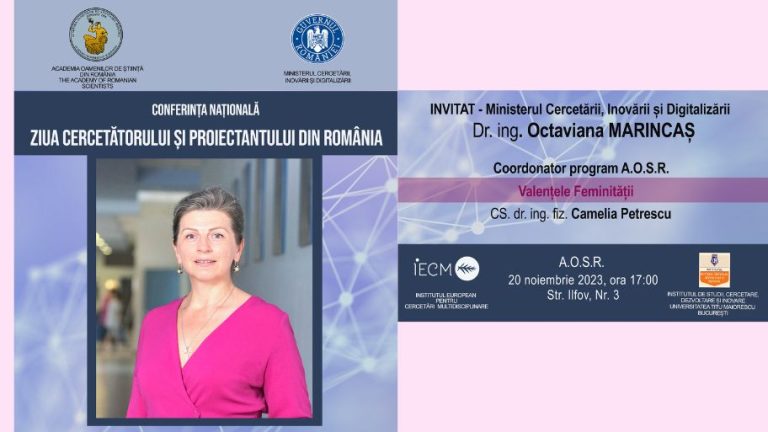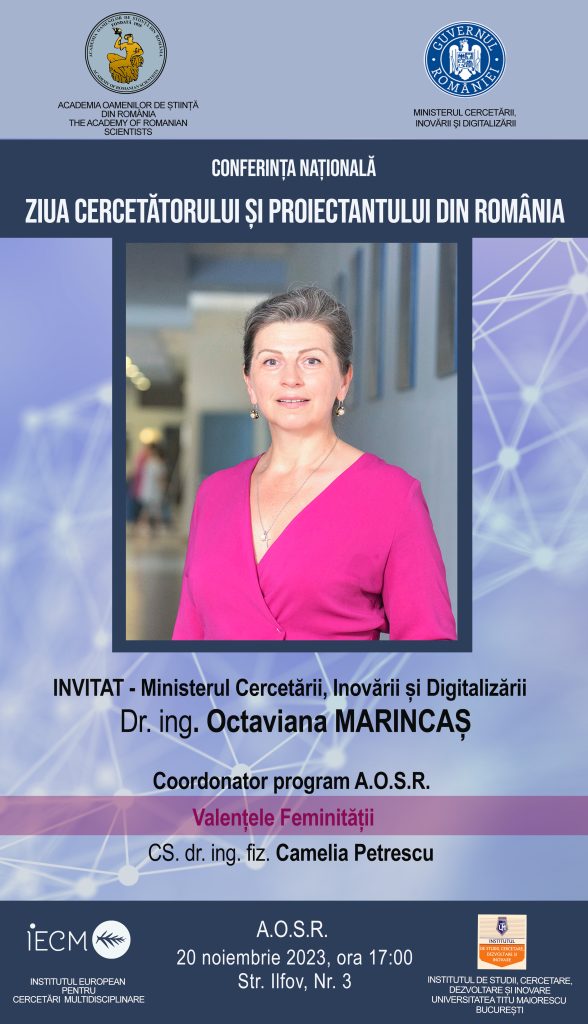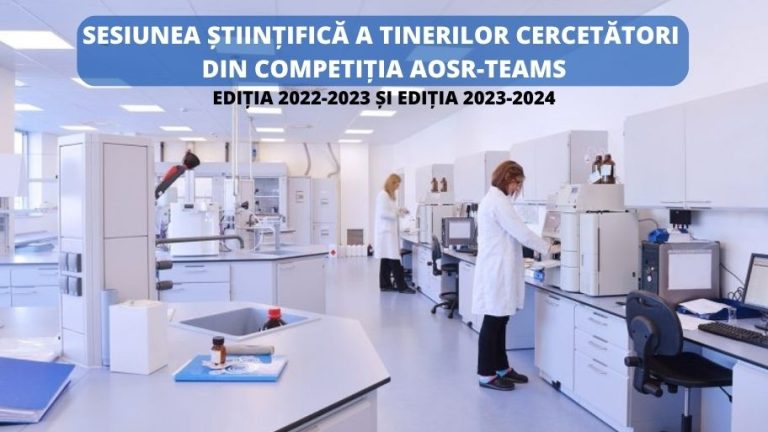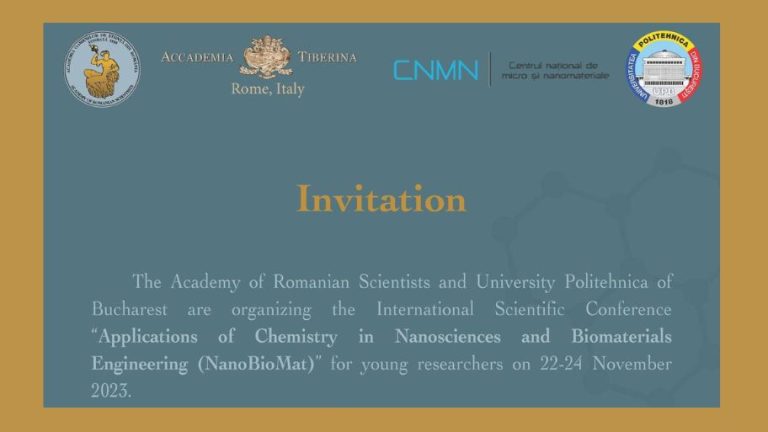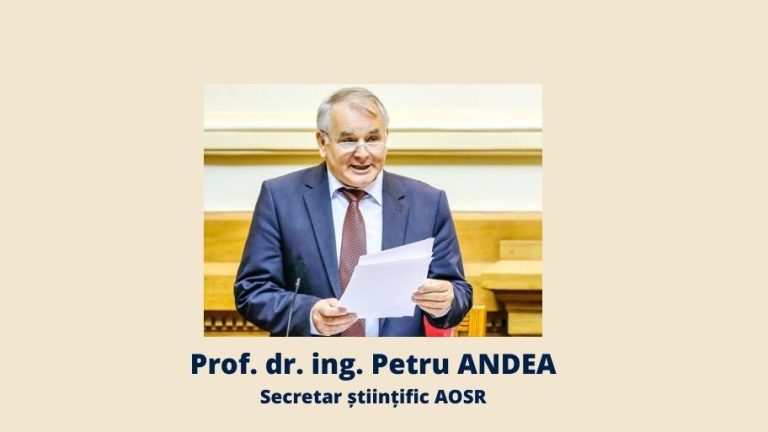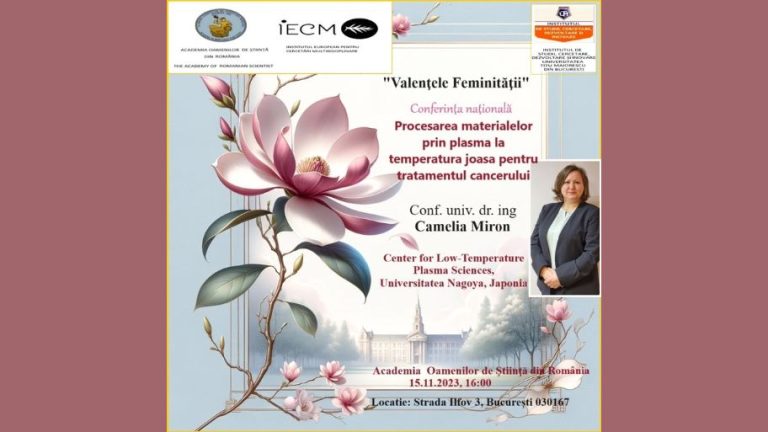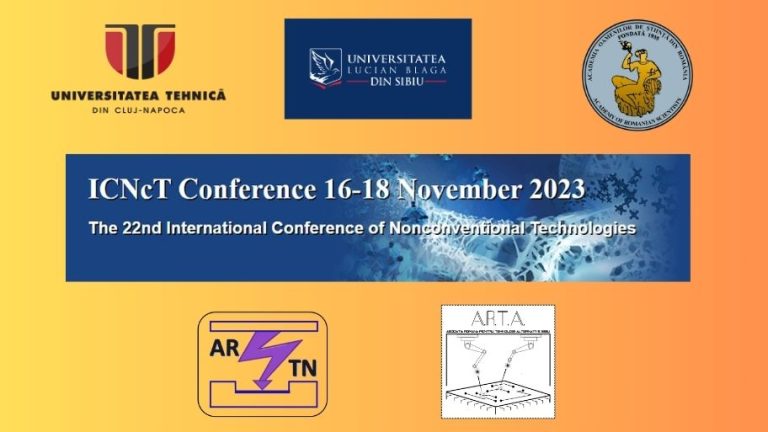On December 11, 2023, at 12:00 noon, at the headquarters of the Academy of Romanian Scientists, the book
ECONOMY AND SOCIETY
IN THE AGE OF DIGITALISATION, coordinators: Constantin Brătianu, Doina Banciu, Nicolae Dănilă.
Presented by Professor Emeritus Constantin Brătianu.
The work is published by the Academy of Romanian Scientists. More information
HERE
This volume is a first attempt to integrate the academic efforts of the members of the Section of Economic, Legal and Sociological Sciences of the Academy of Romanian Scientists. Although research fields are strongly individualised by the tradition of the system of scientific disciplines, they converge when we consider the spectrum of economic and social life. This convergence is the working hypothesis of the present volume, which focuses on the phenomenon of digitisation, which is increasingly pervasive in all aspects of our daily lives. The exponential development of computer technologies and artificial intelligence applications is generating significant changes in all fields of activity, but especially in economics, law and sociology. Understanding the new tools and using them responsibly is becoming increasingly difficult unless serious efforts are made by government structures to find solutions to the challenges of these phenomena.
The phenomenon of digitisation and the digital transformation as a natural consequence of it are explained in several chapters, both from an economic and legal point of view. Digitisation requires new thinking in governance, management and legislation, which needs to be understood to avoid the pitfalls that any new phenomenon brings with it. This is why knowledge management plays an increasingly important role in the life of companies and administrative structures. The management of intangible resources is different from the management of tangible resources and it is therefore important to understand their complexity and how digitisation accelerates the dynamics of the shift from tangible to intangible, i.e. from linear to non-linear. A new challenge is also to reconsider the ways of securing intellectual property and to reduce trends of intellectual theft with multiple negative consequences.
A separate chapter addresses the challenge of digitising financial banking systems and central bank governance. Another chapter focuses on the digitisation of libraries and their transformation into lifelong learning systems. The global crisis of the covid has forced a shift to home working and online learning, with its associated difficulties, but also opening up new perspectives. Artificial intelligence is becoming a driving force with multiple applications and consequences that are still hard to predict. The fear generated by artificial intelligence applications is explained by the difficulty of understanding new opportunities, but also by the possibility of using them against the common good, amplifying thievery, plagiarism and anti-social behaviour.
From a legal perspective, contemporary challenges in public administration and administrative law are analysed. New thinking is needed to reconsider the role of administrative structures and their dialogue with citizens. Another challenge is the protection of personal data and the understanding of human rights in the new, more complex and more difficult to understand digital space. This includes the new legal requirements of home working and intellectual nomads. Digitisation creates new vulnerabilities in the system of delegation of tasks and responsibilities in both private companies and public administration structures.
